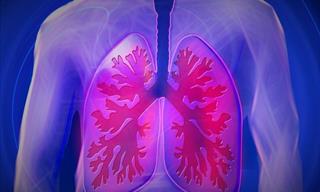Vaping is a new alternative to smoking that has gained significant popularity in the last few years for its healthier approach to nicotine intake. Between the interesting appearance of vaping gadgets and promises of a tobacco-free smoking experience, an entire generation of smokers have switched over to e-cigarettes or vapes.
As vapes are generally considered to be less harmful to the body than cigarettes, the original use of Vapes, an alternative mechanism, and technique for smoking was meant to ween smokers off a bad habit. It may also, however, be bringing crowds of non-smokers into a presumably healthy smoking arena. In two years, the vape industry will be worth $32 billion dollars, thanks to its growing popularity.
With that in mind, we felt it would be helpful, for all the smokers and non-smokers alike out there, to gain a little clarity on the difference between smoking and vaping, and the possible effects associated with both.
Cigarettes, Vaping and your Lungs

It’s a known fact that cigarettes are harmful to your lungs. They contain over 70 different carcinogens that affect the lungs. Burnt paper and tobacco also create particulates that can be accidentally inhaled and get lodged in the lungs. Vapes allow you to avoid the harmful effects of the combustion, as a coil is used to heat the e-liquid to create an aerosol that can be inhaled.
However, vapes can also have their downside. While smoking is the worse of the two, many of the ingredients of the e-liquid can also be harmful, though only minimal research has been done, most of which have been animal studies.
What do the flavors add?

There have been issues in the past concerning the presence of certain chemicals known as diketones, such as diacetyl and acetyl propionyl. Inhaling these chemicals can cause a disease called bronchiolitis obliterans, commonly known as Popcorn Lung, over consistent and prolonged use. This disease affects the smallest tubes in the lungs, called alveoli, through which oxygen is absorbed into the bloodstream. It causes the alveoli to become inflamed, which can restrict the absorption of oxygen into the blood, and cause severe coughing and shortness of breath.
A study conducted in 2014 determined the use of these chemicals in e-liquids was avoidable, so most manufacturers reformulated their liquids, and now publish the diketone levels in their e-liquids. Despite cigarettes having a much higher amount of diketones, the manner in which it is consumed results in much less damage than when compared to the damage that can be caused by the small amounts in e-liquids.
Exploding Batteries?

When e-cigarettes first began to gain popularity, shortly after their release in 2007, numerous complaints have been lodged regarding the batteries of e-cigarettes and vapes. The batteries have a tendency to overheat, especially if used frequently, which may also cause the batteries to explode.
To date, there have been 360 reported e-cigarette battery explosions. 82 have exploded during use, while 92 exploded while charging. 67 reports were of spare batteries that exploded after being used in removable battery mods. Finally, 75 were reported to have exploded during storage, transit or unknown circumstances.
Some explosions occurred due to incorrectly charging the device, whereas others occurred due to the use of spare batteries or simply overuse. This number, however, does not compare to the 90,000 reported fires across the United States caused by cigarette smoking.
A Small Warning

A test conducted by the University of California in San Francisco’s Center for Tobacco Control Research and Education looked into the make-up of the vapor created while smoking e-cigarettes. It was determined that 9 chemicals were found in e-liquid that could be harmful to health and were therefore listed on the State’s carcinogens and reproductive toxins list.
All products containing said chemicals are to be labeled as follows in the state of California: “WARNING: This product contains chemicals known to the State of California to cause cancer and birth defects or other reproductive harm.”
However, it is to be noted that the study showed that the levels of the toxic substances present in e-cigarettes were between 9 to 450 times less than that found in cigarette smoke.
A Good Alternative

Given the serious health concerns associated with smoking cigarettes, e-cigarettes and vapes produce reduced amounts of tar and carbon monoxide, two of the major elements that damage the throat and the lungs. E-Cigarettes are significantly less harmful to you than smoking tobacco, and other than the occasional exploding battery, result in minimal damage to the lungs.
It is an exceptionally good option for smokers attempting to quit because it allows you to take in nicotine, the truly addictive substance in cigarettes, without the harmful effects of the burnt paper and tobacco. The main things to look out for is excessive use of e-cigarettes and vapes, which generally contain more nicotine than the average cigarette. It's also worth checking the ingredients list of the e-liquid being purchased by you to make sure it doesn't contain any potentially dangerous chemicals.
A Better Alternative?

In the very same study conducted by the University of California, it was noted that e-cigarettes themselves had a safer alternative, that is, nicotine inhalers. E-cigarettes were found to deliver 14 times more formaldehyde, 3 times as much cadmium, and many other chemicals in larger quantities than a nicotine inhaler. It could, therefore, be assumed that nicotine inhalers are a safer alternative to e-cigarettes.
However, it is to be noted that much research is still underway and needed on the efficacy of using e-cigarettes, as well as nicotine inhalers, and the effects on the human body, as confirmed by a 2018 study. So the point to take from the given studies is that e-cigarettes and vapes should be used with caution and care, particularly when being used to ween off of cigarettes.
While, of course, anyone worried about their health should ideally avoid all products that involve some form of smoking or chemical inhalant, cigarettes are the greater of the existing evils and smoking is a habit that everyone can do without. However, the addictive properties of nicotine must be also carefully monitored when switching to less combustible alternatives like vapes.
 Go to BabaMail
Go to BabaMail


























































